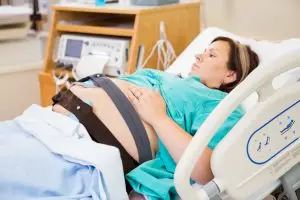 Recently the Supreme Court of Wisconsin (the “Court”), unanimously held that, “[t]he jury was properly given the alternative methods instruction in this case based on the expert testimony introduced at trial.” Barney v. Mickelson, 2020 WI 40 (emphasis added). The Court reversed the court of appeals decision and reinstated the circuit court judgment dismissing the Plaintiff’s case against the Defendant. This case illustrates the importance of medical expert testimony in malpractice lawsuits, whether in a trial court or state supreme court.
Recently the Supreme Court of Wisconsin (the “Court”), unanimously held that, “[t]he jury was properly given the alternative methods instruction in this case based on the expert testimony introduced at trial.” Barney v. Mickelson, 2020 WI 40 (emphasis added). The Court reversed the court of appeals decision and reinstated the circuit court judgment dismissing the Plaintiff’s case against the Defendant. This case illustrates the importance of medical expert testimony in malpractice lawsuits, whether in a trial court or state supreme court.
The baby, London Barney, was born with severe and permanent neurologic injuries. The Barneys filed a medical malpractice claim against Dr. Mickelson alleging that Dr. Mickelson was negligent in failing to accurately trace the baby’s fetal heart rate during Mrs. Barney’s labor, failing to properly respond to signs of fetal oxygen deprivation, causing the baby to suffer permanent neurologic injuries.
Specifically, “the Barneys maintained that 90 minutes prior to delivery, at the critical pushing stage, Dr. Mickelson was negligent in failing to switch to a more accurate method of monitoring London’s heart rate, which would have revealed London’s lack of adequate oxygenation. The Barneys’ standard of care expert testified that the external monitor was not accurately tracing London’s heart rate 90 minutes prior to delivery, and therefore Dr. Mickelson should have switched to a pulse oximeter or a fetal scalp electrode to trace the fetal heart rate.” According to the testimony of Dr. Mickelson and her two standard of care experts, the external monitor was accurately monitoring the baby’s heart rate and it was reasonable to use the external monitor throughout the delivery, rather than switching to a pulse oximeter or fetal scalp electrode.
A three-week jury trial proceeded during which sixteen experts testified. Defendants requested the circuit court give the alternative methods instruction to the jury; an optional paragraph contained in the medical malpractice jury instructions. The alternative methods instructions states:
“If you find from the evidence that more than one method of (treatment for) (diagnosing) (plaintiff)’s (injuries) (condition) was recognized as reasonable given the state of medical knowledge at that time, then (doctor) was at liberty to select any of the recognized methods. (Doctor) was not negligent because (he) (she) chose to use one of these recognized (treatment) (diagnostic) methods rather than another recognized method if (he) (she) used reasonable care, skill, and judgment in administering the method.” Wis JI——Civil 1023.
The Defendants argued that this alternative methods instruction is warranted in this case since, based on testimony, the continued use of the external monitor was recognized as a reasonable method of treatment. The Plaintiff’s objected to the instruction, arguing that continued reliance on the external monitor, as opposed to switching to the pulse oximeter or fetal scalp electrode, was effectively “doing nothing,” which was not an alternative method. The circuit court agreed with Defendants and gave the jury the following alternative methods instruction:
“If you find from the evidence that more than one method of treatment for Raquel Barney’s condition was recognized as reasonable in the state of medical knowledge at the time, then Dr. Mickelson was at liberty to select any of the recognized methods. Dr. Mickelson was not negligent because she chose to use one of these recognized treatment methods rather than another recognized treatment method if she used reasonable care, skill, and judgment in administering the method.”
The jury found in favor of Dr. Mickelson, that she was not negligent in her care. The case was appealed and the appellate court, relying on Miller v. Kim, 191 Wis. 2d 187, 528 N.W.2d 72 (Ct. App.1995), reversed and remanded the case for a new trial. The Defendants petitioned for the Supreme Court of Wisconsin to review.
There was a twofold question laid before the Supreme Court of Wisconsin: “[W]hether the alternative methods instruction was erroneously given to the jury based on the record in this case and in light of Miller.” To do this, the Court had to: a) review the trial testimony of Dr. Mickelson and the three standard of care experts to ascertain the reasonable methods of treatment available to monitor the baby’s heart rate, and then, b) decide if the court of appeals correctly relied upon Miller to conclude that Dr. Mickelson “did nothing.”
The Court reviewed the contested expert testimony that was given at the trial, noting, in part: “A review of the record shows that the parties’ experts disputed whether the external monitor was continuously and accurately measuring London’s heart rate in the last 90 minutes of labor and, consequently, whether Dr. Mickelson’s use of the external monitor continued to be a reasonable alternative method. The experts disputed the extent to which, in the last 90 minutes of labor, the external monitor missed London’s heart rate or traced Mrs. Barney’s heart rate instead…The experts further disputed whether, in the last 90 minutes of labor, Dr. Mickelson’s continued use of the external monitor to measure London’s heart rate was a reasonable alternative method to the use of a pulse oximeter or fetal scalp electrode to monitor fetal heart rate…” (emphasis added).
The Wisconsin Supreme Court concluded: “The trial testimony demonstrates that the experts disputed whether the external monitor was continuously and accurately tracing London’s heart rate. Further, there was a dispute about whether continuing with the external monitor in the last 90 minutes of Mrs. Barney’s labor was a reasonable alternative to a pulse oximeter or a fetal scalp electrode. Since there was substantial testimony that Dr. Mickelson’s continued use of the external monitor was a reasonable method to continue to assess London’s heart rate and was within the standard of care, the alternative methods instruction was properly given by the circuit court in this case … Any dispute in testimony regarding the complex medical issues in this case was for the jury, not the court of appeals or this court, to weigh and ultimately resolve. Based on all of the expert testimony presented at trial, the circuit court properly gave the jury the alternative methods instruction.”
The Court then distinguished this case from the Miller case, where a spinal tap was not performed by the doctor, despite the child exhibiting symptoms, and the experts were unanimous in their testimonies that a spinal tap was the only reasonable method to diagnose spinal meningitis. The circuit court erred in that case when it gave the individual methods instruction, because all the experts in that case testified that a spinal tap was the only reasonable method of diagnosis for a young child with symptoms of spinal meningitis; in this case, “…this record contained substantial expert testimony on which the jury could find that Dr. Mickelson’s choice to continue with the external monitor was a reasonable alternative method to monitoring London’s heart rate and was not analogous to “doing nothing.” Therefore, we conclude that there is ample evidence in this record to support the circuit court’s decision to give the alternative methods instruction.”
Thus, it is apparent from this case, that the role of a medical expert witness in malpractice cases is essential to the outcome of the case. The Supreme Court of Wisconsin relied heavily on the testimonies of the medical experts to order the reversal of the court of appeals decision and reinstate the lower court’s judgement dismissing the malpractice claim against the Defendant. Cambridge Medical Experts provides top quality medical expert witnesses for all medical malpractice claims. Call us today and learn more about our experts and how they can impact the outcome of your case.
Barney v. Mickelson, 2020 WI 40.
https://www.wisbar.org/NewsPublications/Pages/General-Article.aspx?ArticleID=27705

